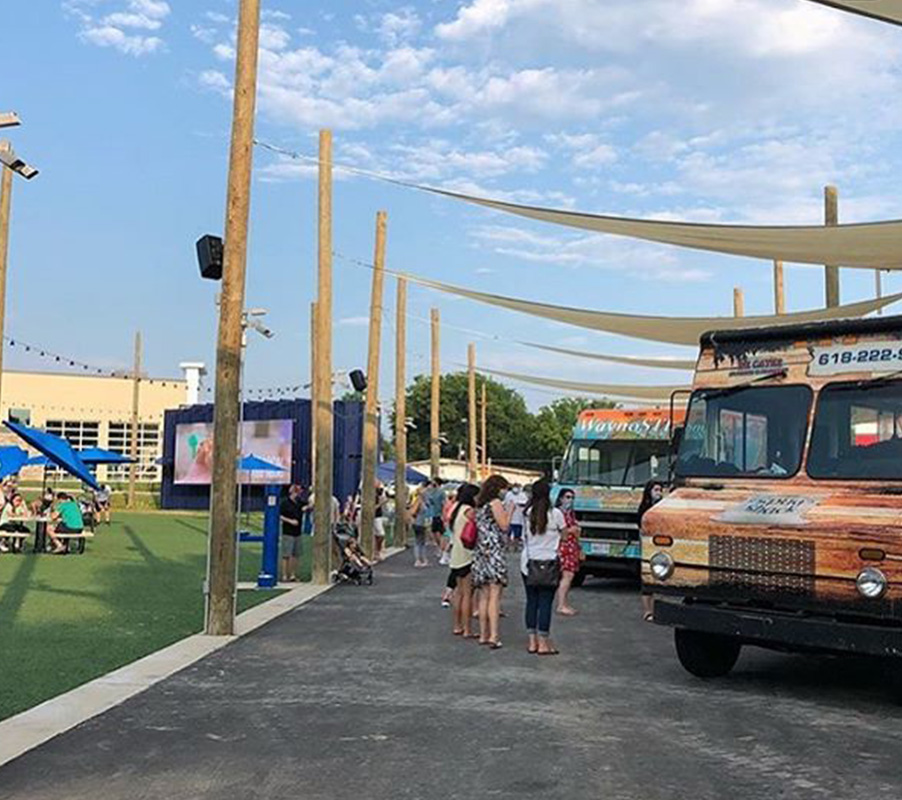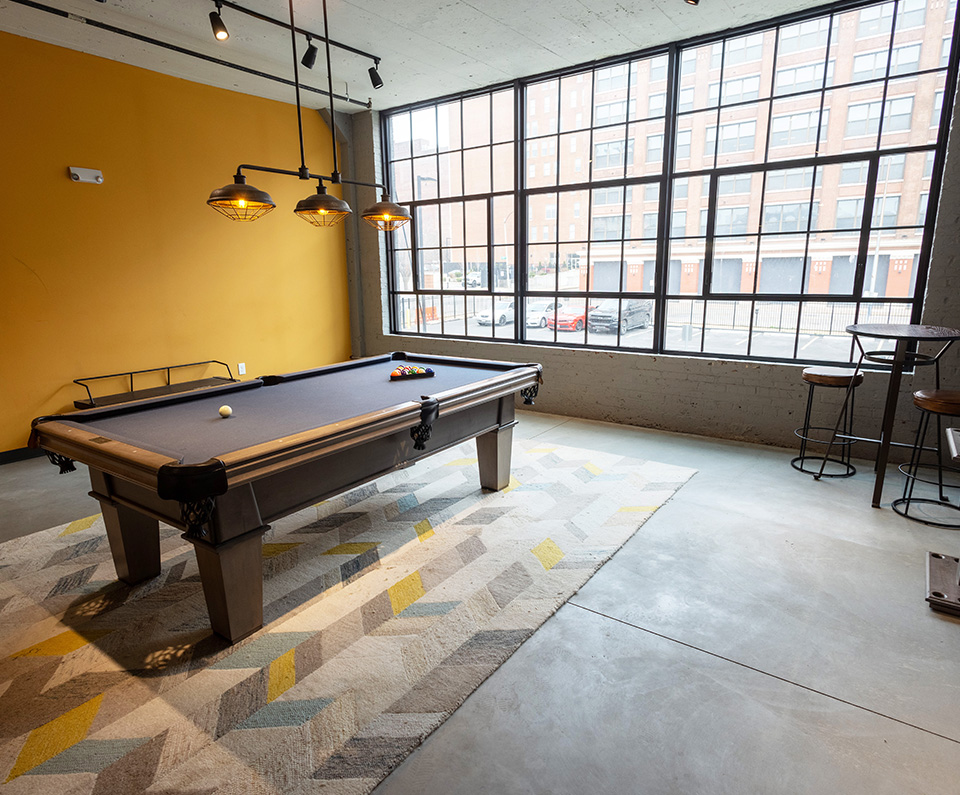
9 Mile Garden in Affton, developed by Guerrilla Street Food co-owner Brian Hardesty and Seneca Commercial Real Estate, will open its doors Friday— kicking off an opening week filled with live music and charitable events.
The food truck garden, located at9375 Gravois Road, will begin operating for lunch service Friday and will continue lunch and dinner service through the weekend.
Live musical performances by local acts The John Hughes Experience, Caroline Steinkamp and TreeOne Four will be featured throughout the weekend. 9 Mile Garden will offer an outdoor movie screening the evening of July 4 in celebration of Independence Day, and the food truck garden’s lineup of 30 food trucks will be on rotation.
Participating food trucks include: Fire and Ice Cream; Zia’s; Sedara Sweets; Farmtruk; Guerrilla Street Food; Doggie Mac’s; Seoul Taco; Essentially Fries; Zacchi’s; Wok and Roll; The Saucy Iguana; UKraft; Truckeria Del Valle; Burgers STL; Wayno’s; Blues Fired Pizza; SpudShack; The Crooked Boot; Red Dirt Revival; Supersmokers; CJ’sDeli; Tastebudz Express; Heavy Smoke; Scoops & More; Poptimism; Graze; Smokin’ Loud BBQ; and Slice of the Hill.
The Canteen, an all-draft bar, also will open its doors, serving a wide selection of draft beer from local and national breweries alongside a selection of draft wines and cocktails, and cold brew coffee from Blueprint Coffee. The 3,500-square-foot space will have 16-foot garage doors that retract to transform the space into an open-air bar. The space also can be reserved for private events for up to 200 people.
The entertainment district will feature a rotation of St. Louis-area food trucks for lunch and dinner service six days a week. A jumbo screen will show outdoor movies and sporting events. There will be space for nine food trucks, plus room for two guest trucks for special occasions.
Larry Chapman’s Seneca Commercial Real Estate owns the property where the food truck garden is located. The project had an estimated cost of close to $1 million, officials previously told the Business Journal. The real estate company served as its own general contractor.
Credit:
Veneta Rizvic | Jul 01, 2020
St. Louis Business Journal
All this has fired my curiosity about social media. It is pretty easy to see the power that these platforms have and their ability to create perceptions, which can quickly become reality. When searching for information, the quicker it’s found, the better. It is amazing how easy it is to believe that even small companies are now large and important based on social media. With the right hashtag on peak trends and the right influencer mentions, it seems anything is possible — for good or ill. Results on social media can be both rapid and ruthless. And a bad impression can be very difficult to overcome.
This leads me to thinking about downtown St. Louis and St. Louisas a region. In particular, I thought about current, difficult issues such as crime, lack of growth and negative perceptions of our region generally. Simply typing in the words “St. Louis” into a search engine often yields negative content among top results, while finding good news and positive things about St. Louis takes time and effort.
It seems to me that efforts to promote St. Louis, whether it’sGreater St. Louis Inc. or the city itself, should go out of its way to hire a large team of the best and most talented social media marketers and content creators (local or not), to develop the most robust social media campaigns possible. Every effort should be made to engage online influencers and advocates to advance and promote the good stories about St. Louis — not so that we don’t have to face our problems, but so that the narrative isn’t unfairly dominated by them. I honestly think most of these promotion budgets should be focused on social media, along with other digital tools such as search engine optimization. As important, entities like GSL, Explore St. Louis, the city, county and others need to work in concert with each other and pool their efforts. St. Louis has a long history of business and booster groups running their own shows, which wastes limited resources and can blunt the positive impact we all want to achieve. The creation of GSL is to some extent a recognition of this fact, but there are still lots of other players. To succeed in a social campaign, as in so many other things, we need to set aside our parochial interests and collaborate and, perhaps most important, do things differently.
This is something every business and person that cares about St.Louis can and should help with.
If we can promote enough “good news” stories, it would result in outsiders and even ourselves becoming more upbeat and supportive of the St. Louis community and more confident in its future. This won’t happen overnight, but it can happen. By changing not just the perspective of others, but our own perspective about St. Louis, we can help shape our future for the better. We can be among the top of more fun “cool places to live”national lists, instead of all the lists we don’t want to be on.
It also seems like the best and brightest among us in this arena tend to be younger and ready to change, which is exactly what we need to revitalize and improve every aspect of St. Louis.
I have been a brick-and-mortar real estate developer for more than43 years, and personally believe I’ve done a lot of good for the community. But what’s next? How do we better leverage evolving technologies born from the internet to improve and benefit St.Louis?
Is social media a big part of that answer? I think so.


